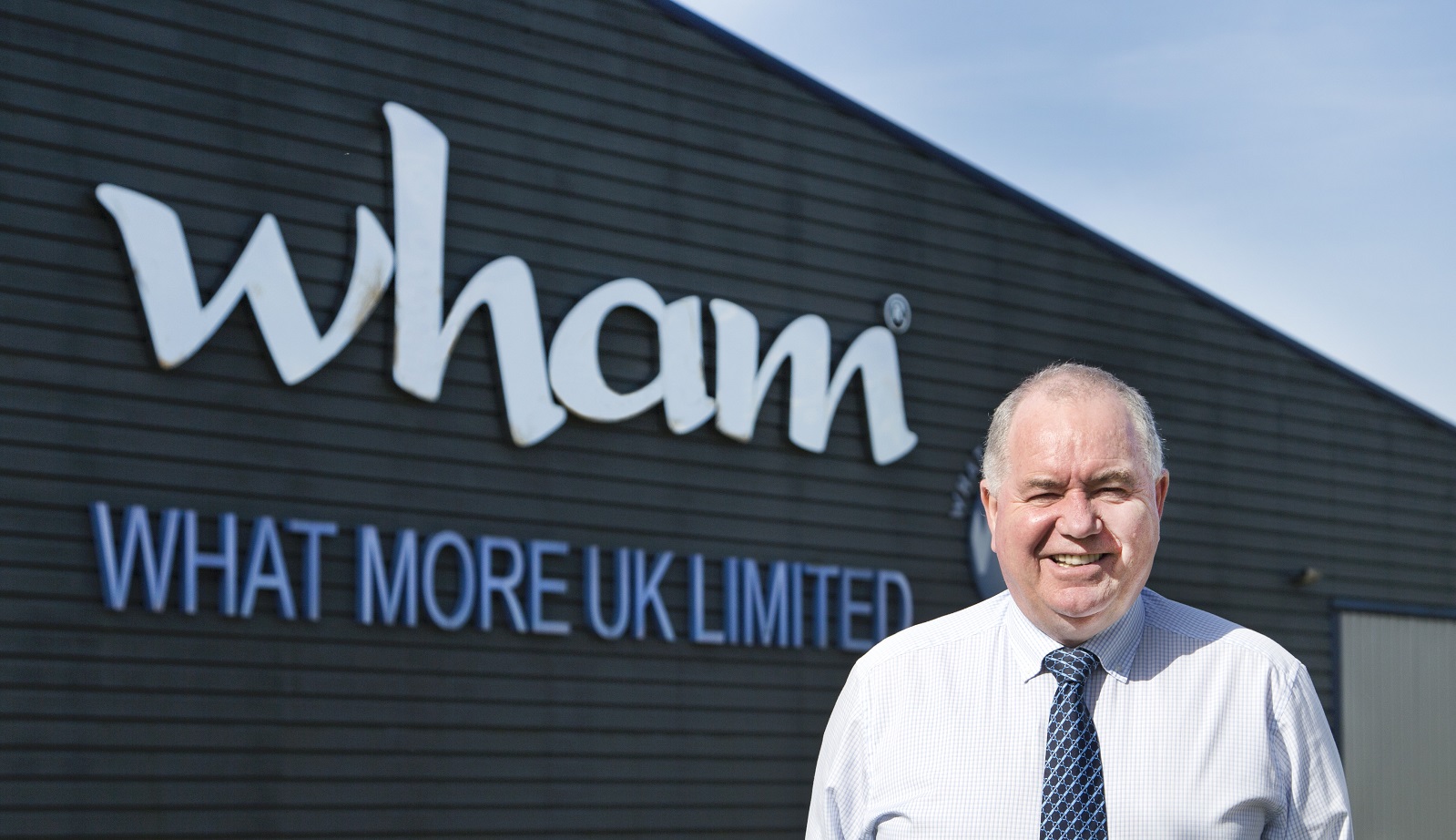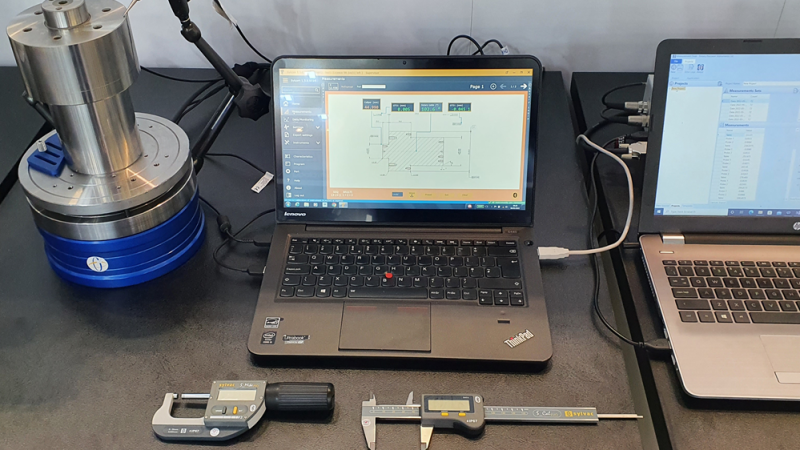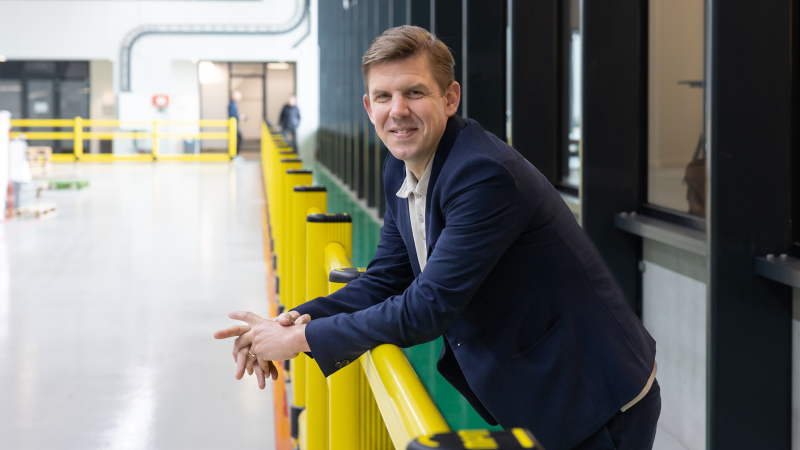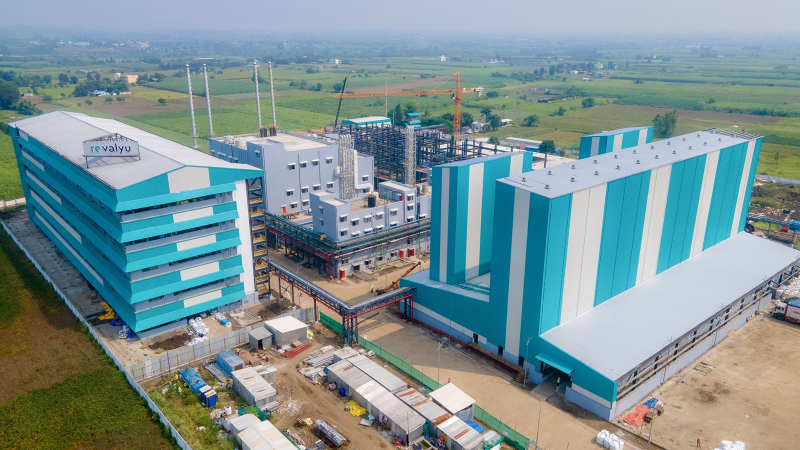Based in northern England, What More UK manufactures reusable plastic storage boxes and housewares as well as non-stick and enamel bakeware and cookware. The company, established in 1999, supplies its products – all under the brand name Wham® – to all UK national and 1700 independent retailers.
Exports account for over 18% of turnover and What More products can be found in 75 countries worldwide. The key market continues to be Europe, but company Director Tony Grimshaw affirms that there is not a single continent that What More does not deliver to.
Enhanced capability
Since we spoke to Tony Grimshaw last year, the company has continued to invest in expansion. What More has not only expanded and upgraded its own production facility but has completed two business acquisitions, enhancing its capability and, importantly, helping to save local manufacturing skills from disappearing.
The acquisition of toolmaker Canteen Smithy Engineering, a specialist engineering company with over 35 years of experience in precision mould manufacture and precision engineering, moved What More closer to self-sufficiency in its mould making.
“This purchase means that most of our moulds will now be made in-house and in Britain. Before the acquisition, our injection moulding tools were purchased abroad, and we now have the capability to manufacture them ourselves,” says Tony Grimshaw.
The more recent acquisition of Firsteel, the manufacturer of customised prefinished metal, will secure the lines of supply for What More’s bakeware and cookware, giving the company total quality control of the whole production process.
“We saw an opportunity to buy a company that was very well established and fully matched our company culture. Firsteel’s expertise, and their proud, committed, and enthusiastic workforce will fit in perfectly with the rest of the What More team. Now we truly are a drawing board to oven bakeware and cookware supplier. Designed in the UK, made in the UK, sold to the UK and the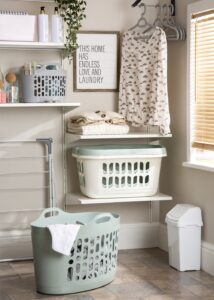 world!”
world!”
He affirms that investment is the cornerstone of What More’s business and is an aspect that has contributed strongly to the company’s leadership position. “By investing in new buildings, new infrastructure and new machines we can continue to deliver high-quality, affordable products whilst keeping up with the ever-growing demand.”
Retaining manufacturing capability
Tony Grimshaw is a strong advocate of sustaining and developing local, British skills. “Significant amount of engineering is leaving the country and we want to push against that trend. The country is losing a lot of experience; an experience that is irreplaceable. Experience that cannot be gained within a five-year apprenticeship.”
“For example, some of the Firsteel employees have worked for the company for 35 years and more. To see that disappear would have been terrible. We are going to use that wealth of knowledge to increase the company’s strength, and let it be absorbed by our apprentices before these valuable workers retire.”
Asked whether a British company making consumer products can compete with low-cost Asian manufacturers, Mr Grimshaw insists that investment is the answer. “We have the best machinery that’s available in the world, and great quality, reflecting the latest sustainability principles. Investment offsets the low labour cost resulting from the non-existence of all the benefits that our people in the Western world enjoy.”
“We can certainly compete well on quality, but our service is also second to none. If you put an order into China, there is an eight-week delay. We do not have that problem. We have plenty of surplus availability on our machines. Post-pandemic, a lot of countries are starting to put the focus back on their local resources. That’s a positive, and very necessary trend.”
There is no business without people
He further affirms that What More stays on the growth trajectory despite the current challenges of increased raw material prices, persistent issues with the supply chain, geopolitical instability, and skyrocketing energy prices.
“It’s all about people: any company stands and falls by its people. Our employees are our most prized asset.  We have great managers within the company and a talented workforce. We try and develop that talent through the company, and fill the top jobs with people from within the company. Sometimes that is not possible, but it is rarer than one might think. If we bring somebody from the outside, we have a good idea who that person would be.”
We have great managers within the company and a talented workforce. We try and develop that talent through the company, and fill the top jobs with people from within the company. Sometimes that is not possible, but it is rarer than one might think. If we bring somebody from the outside, we have a good idea who that person would be.”
“We have been bringing people up through our business successfully since 1999. We have a strong apprenticeship programme and within those apprentices, we may quite possibly see the next engineering manager or the next engineering director.”
“It’s really important to make young people aware of the great opportunities the manufacturing environment offers and that they can progress from the shop floor to the very top if they wish,” he insists, reflecting that schools and technical colleges are doing a good job in this respect, and the pool of apprenticeship candidates is thus sufficient.
Pushing onwards
Speaking about general market developments, Mr Grimshaw affirms that all of the company’s products sell well and demand for the cookware as well as for the storage range is sound and rising. It should also be highlighted that the company, a manufacturer of 5.8 million pieces of plastic items a month, is firmly committed to the principles of sustainability.
“We must keep reinforcing the message that not all plastics fit under the umbrella of ‘plastic is drastic’. We do not do single-use plastics, the kind of plastics that everyone should avoid,” he says, pointing out that recycling is also a big topic for What More.
In 2020, the company launched What Home Upcycled, featuring kitchen, storage, and laundry products, all of which are 100% recycled and recyclable, and made from recycled single-use plastics. The range was shortlisted for the prestigious Plastics Recycling Awards Europe 2020 and will be further developed and expanded.
In conclusion, he affirms that What More’s vision for the future is clear. “Onwards and upwards. We want to keep the UK’s strong history of manufacturing alive, and absorbing the knowledge and expertise of the last two acquisitions into the business means that we are in a stronger position to push forward with our growth.”
